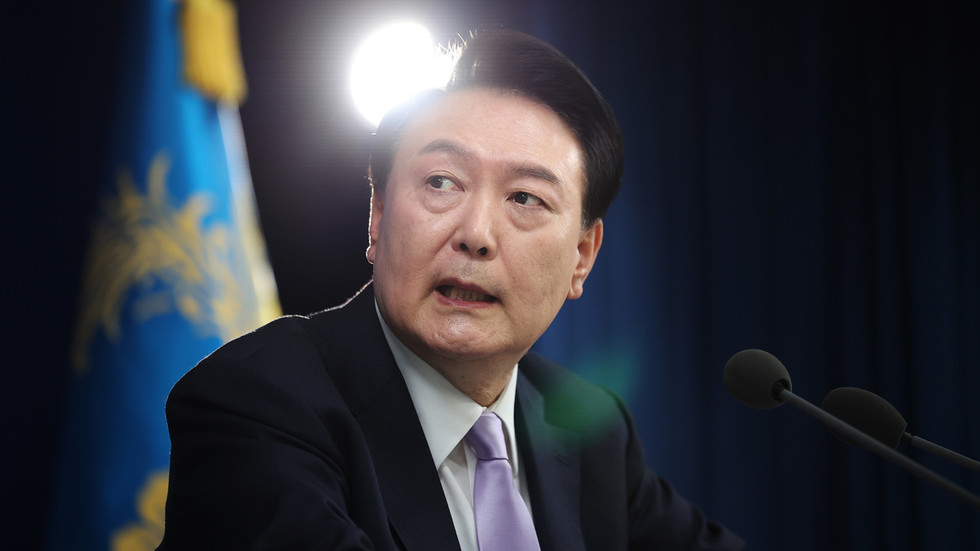South Korean President Yoon Suk Yeol has taken a significant and controversial step by imposing emergency martial law, citing a perceived threat from the opposition. During a televised address, Yoon accused the opposition Democratic Party of engaging in “anti-state activities” and plotting a rebellion. He claimed that the party, which holds a majority in the National Assembly, has been actively undermining the government’s efforts and is sympathetic to North Korea. The imposition of martial law, Yoon explained, is necessary for eradicating these so-called pro-North Korean forces and safeguarding the constitutional order of freedom within South Korea. This drastic measure has sparked intense political turmoil and raised concerns about civil liberties and the state of democracy in the country.
In the wake of these developments, South Korea’s Defense Ministry has called for a meeting with senior military commanders and placed the armed forces on full alert, reflecting the gravity of the situation as perceived by the government. Reports indicate that the military has also announced a suspension of parliamentary activities, effectively barring members of the National Assembly from accessing their workplace. This move is part of Yoon’s broader strategy to consolidate power and counteract what he claims are destabilizing actions by the opposition. Such a suspension of parliamentary function has led to heightened tensions and fears of political repression, as lawmakers find themselves unable to perform their legislative duties amidst the unfolding chaos.
The Democratic Party, led by Lee Jae-myung, has vocally criticized Yoon’s decision, describing the declaration of martial law as unconstitutional. Lee argues that the president’s actions are a blatant abuse of power and an attempt to silence dissent. The opposition party, which has been a consistent thorn in Yoon’s side since he took office in 2022, claims that it has worked to protect the civil rights of South Koreans. This contention comes against a backdrop of Yoon’s falling approval ratings and increasing frustration among the electorate, exacerbated by the government’s inability to address pressing economic concerns effectively.
Since Yoon’s administration began, the Democratic Party has repeatedly obstructed his legislative agenda, culminating in a recent episode where the opposition rejected his proposed budget bill for 2025. This confrontation illustrates a growing rift between the ruling People Power Party and the opposition, with the latter demanding increased budget allocations to revive the economy and address the livelihoods of citizens. Instead of reaching a compromise, the opposition took a unilateral stance, echoing its commitment to prioritizing economic recovery over Yoon’s preferences, thereby deepening the political divide.
In addition to the budget dispute, the Democratic Party has been pursuing a more aggressive strategy against Yoon’s administration, submitting impeachment motions against specific high-ranking officials, including a state auditor and the chief prosecutor. This tactic reflects the ongoing power struggle between the two parties, with the opposition seeking to challenge Yoon’s governance by targeting his appointed officials. The situation raises significant questions about the political landscape in South Korea, particularly regarding how the government will respond to these impeachment efforts and the broader implications for political accountability and governance.
As South Korea navigates this unprecedented crisis, the international community watches closely, concerned about the ramifications of martial law and potential military intervention in domestic politics. The ongoing conflict between Yoon Suk Yeol’s administration and the Democratic Party underscores the deepening polarization within the nation, posing questions about the future of democracy in South Korea. The political impasse and ensuing military readiness signal a period of uncertainty, with the possibility of both internal unrest and external pressures influencing the nation’s direction. If these tensions continue unchecked, they could lead to a significant shift not only in South Korea’s governance but also in its relationships with regional and global partners.

